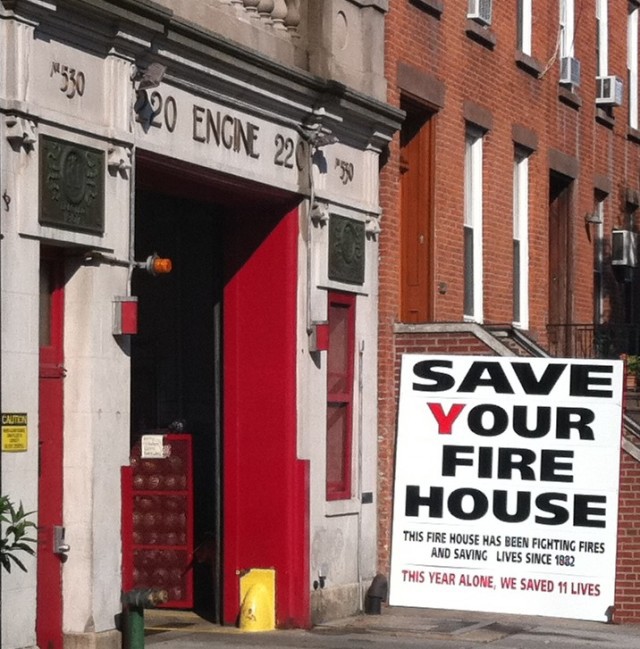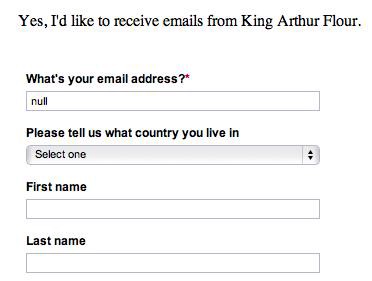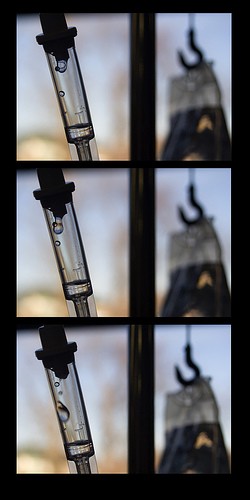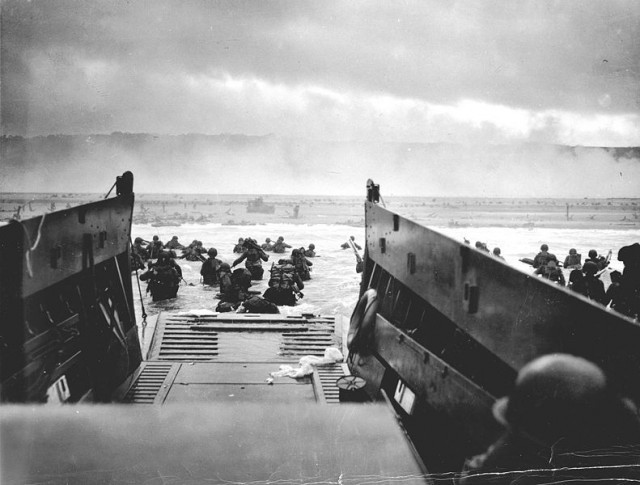Park Slope Firehouse Has Only Saved 11 Lives This Year

This Park Slope firehouse, Engine 220, is one of the 20 or so firehouses slated to be closed under the proposed City budget. So they’re fighting back, with a big sign! So far, they report, they’ve saved 11 lives this year. Um, it’s June already! That’s like just two lives a month. What do the firefighters do the other 27 days of the month, you know?
The Ladies Who Fake Orgasms
Here are further datapoints for our continuing research into orgasm fakers: “Cooper surveyed 366 females ages 18 to 32 who had indicated they endorse faking orgasms, about their sexual habits, their reasons for faking it during a past relationship and their feelings about intimacy. Many of these women said they faked it due to their own fear of intimacy; they also reported faking orgasm because they felt insecure about their sexual functioning, or because they want to get it over with. There was also a small group of participants who did it to enhance their own sexual experience.”
52 Email Newsletters To Which You Can Subscribe

3. Bark Talk
4. Jauntsetter
5–16. Etsy
17. Garden & Gun
19. Tikkun
21. History.com
22. SOAR
24–31. Slate
32. Brooklyn Based
33. Mental Floss
34. Kitty Bytes
36. Minding Manners
37. Blueswax
38. Kansas Sampler
39. Transportation Communications Newsletter
40. Paint Insights
41. The Zoe Report
45. Digital Due Diligence Weekly
46. McKinsey Quarterly Newsletter & Alerts
47. Women Drummers International
48. Snopes
49. The Annoyance
50. Daytrotter
51. Nonsense NYC
52. Eggpost
Jolie Kerr believes it every time The Awl says they’re bringing back the newsletter.
DSK Does Not Live in Brooklyn
Attention: Mail for former IMF head Dominique Strauss-Kahn should be addressed to 153 Franklin Street in Manhattan, not that address in Brooklyn. Though the folks in Brooklyn appreciate this shipment of Hebrew books for him. (!!??)
E. Coli Is The New Credit Crunch
“In an opaque interconnected system, once toxins are identified then all goods become suspect. As with ‘toxic’ subprime assets, so with suspect vegetable products, there is an indiscriminate reaction against anything and everything that could be contaminated. In the same way that many ‘good’ mortgage-backed securities became unsaleable, so farmers selling cucumbers from Spain suffer because of a problem with beansprouts at one German farm.”
Is the European E. coli crisis — which might not actually be bean sprout-related — just like the financial crisis? Sure, why the hell not.
"Extreme Networking" and Lunchepreneurs

Happy Internet Week! In case you don’t know, Internet Week is “a festival celebrating NYC’s thriving Internet industry & community,” according to the website of Internet Week Dot Com.
If you wanted to, there’s a talk tonight at the Internet Week, except it’s not on the Internet, it’s in real life, called “Will Tweet for Food: Writing Your Own Ticket in the Digital Age.” There’s tickets, and you can write them.
But even more notable are two new developments in this wonderful age. There’s Sonar, which shows you people not in your networks who are around you and using Foursquare or Twitter. They call this “extreme networking.” (They do!)
And there is now something called Lunchepreneur. You sign up, tell them a little about who you are, and they match you up with lunch dates of interest! It’s like speed-dating, except instead of demeaning your outfit or your body, they demean your mind and you have to split a check.
Actually Awesome Things to Say to a Cancer Patient
by Virginia C. McGuire

Now that we’ve covered what not to say, let’s talk about some winning things to say to somebody with cancer.
These are my preferences after more than 20 years as a cancer patient, then a cancer survivor, and then a cancer patient again. Clearly different things are going to bug different people. You will do the best you can because you’re a nice person, and your friend with cancer will be able to tell that you are doing the best you can. Don’t over-think this.
1. I don’t know what to say.
If you’re feeling uncomfortable talking to us, we can probably tell. The best way to dispel awkwardness is to admit that you feel awkward. It’s not our job to put you at ease, but maybe you’ll feel better if you confess.
2. This is the worst news ever!
Of course you’re upset to hear about your friend’s diagnosis. It is totally fine to have strong feelings and to show them. But really, your friend should not have to reassure you or take on the burden of your feelings. I’ve kicked my family out to go cry in the waiting room during bad-news doctor visits. This is, first and foremost, my tragedy, and I can’t be strong if the people around me are falling apart.
3. Is this a good time for you to talk about it?
We’re all smiles in cancer land. We get complimented all the time for our positive attitudes. But sometimes our optimistic public face is in danger of cracking. We want to know that you care about us, but you can help by not pushing too hard for The Real Backstory in, say, the grocery store check-out line. Tell us you want to know more, and let us decide when we’re up for that conversation. And sorry, you have to accept it if we don’t want to talk about it at all.
4. Here are some ways I’d like to help you.
I like it best when offers of help are very specific. “I have a whole bag of fun wigs at home. Do you want to borrow them for a while?” or “I’m taking my kids out for ice cream later. Can I bring your kids along?” Then I can say yes or no without having to think of something helpful for the person to do. Also, when I get a vague offer of help and then I make a specific request, it makes both of us feel bad if the person doesn’t want to do what I’ve asked.
5. Do you need someone to coordinate volunteers?
The first time my cancer came back after a 20-year hiatus, I was a busy working mother and was totally blindsided by the whole thing. My friend Anne offered to coordinate parents at my son’s school to make meals for our family. The coordination was a bigger gift than the food itself. If you’re good at this, you might want to offer to coordinate the help that comes in. Offering to help with information control is also good. My partner does this for me. He’s willing to take phone calls or answer email from concerned friends when I’m feeling like a hermit. If you can offer this, it might take a huge burden off of the patient.
6. May I pray for you?
Many people find it comforting to know you’re praying for them. To me it feels like you’re proselytizing. But the rare person who asks me instead of TELLING me they’re praying for me always gets a big fat yes. As long as you’re not shoving your religious views down my throat, I am happy for you to pray if it comforts you to do so. Unless you know your friend shares your religious views, ask how they’d feel about having you pray for them.
7. You look great.
We like to hear this as much as the next person, but please, only say it if it’s true. We might be bald. We might be scarred. We might have puffy faces from steroids or bruises from having blood drawn. So if we look like shit and you lie about it, we can tell. But I do like to hear it when I look sort of okay.
8. No strings attached.
I love to get letters, care packages, and email. It helps to feel loved, and I especially appreciate the people who let me off the hook. The emails that say, I wanted you to know I’m thinking of you but you don’t have to write back. The phone calls that say, call me back only if you want to. The gifts that say, no thank you note is needed. I know I sound like a jerk. Someone sends me a gift and I can’t even be bothered to write a thank you note? Returning phone calls is a burden now? But when I have very limited energy, I want to save it for my family and my garden and my writing. Cancer patients still have an obligation to be nice people, but maybe they don’t have to follow all the social conventions perfectly right now.
9. Take cues.
Listen to me carefully. I might have just told you some really scary news about my health, but what else am I telling you? Am I being blunt and painfully realistic? Am I being cheerful, downplaying the seriousness of the news? Am I avoiding giving you details? Your job is to follow my lead. You can ask questions, but if I give you vague answers you need to drop it. It means I’ve told you as much as I want to tell you right now. If I’m optimistic, be optimistic with me. If I’m in the mood for gallows humor, don’t try to force me to look on the bright side.
10. Say nothing.
That’s right. I love it when people say nothing at all about my cancer. I’m tired of talking about it. I’d be curious to hear how other cancer patients feel about this, but I find it refreshing to be treated normally. That doesn’t mean you should ignore my illness, but it can be a nice change to have an interaction with a friend where it just doesn’t come up.
Above all, just do the best you can, and if you aren’t sure you’re giving the right kind of support, ask your friend how you can do better. Cancer patients may be walking an emotional tightrope a lot of the time, but we can recognize and appreciate good intentions, even if the things you say aren’t pitch perfect every time.
Virginia C. McGuire is a Philadelphia-based freelance writer.
Photo by Nic McPhee.
Are Animals Organizing Against Us? Definitely!

“There is, for example, the case of Tatiana, a four-and-a-half year old Siberian tiger in the San Francisco zoo who in 2007 scaled the twelve-foot high wall of her enclosure to attack three teenagers who had been annoying her by shouting obscenities, waving their arms and possibly throwing things at her. After she ripped one of them to pieces, the other two ran away, with Tatiana in hot pursuit…. [And then there is] John Vaillant’s highly entertaining The Tiger: A True Story of Vengeance and Survival, in which a wild Siberian tiger stalks and eats a human poacher who had been catching tiger cubs for their skins and eating their flesh. The avenging tiger attacked no other humans, despite opportunities to do so, but he destroyed everything bearing the poacher’s scent, including the pots that had been used for cooking tiger cubs.”
— Barbara Ehrenreich reviews the literature of our troubled relationship with animals, concluding that there are signs of a global animal uprising. Okay, not really quite that: There is not “any evidence yet of cross-species coordination against human hegemony.” But she said “yet”!
D-Day Commemorated With Paint, Balls

“The field sorts out the men from the boys. The adrenalin is just cranked. It’s stressful.”
— “Andy Van Der Plaats, a 64-year-old marketing consultant from North Fort Myers, Fla., and a high-ranking officer in the Allied paintball chain of command,” discusses the paintball tournament in Oklahoma in which “some 3,000 people will relive the events of June 6, 1944, D-Day, when German-occupied France was invaded by Allied Forces, marking a turning point in World War II. This year’s Oklahoma version will mark the 14th time a D-Day-style paintball game has been staged. There’s an Allied side and a German side, of course, and even the French Resistance is represented, but it’s not just a paintball free-for-all. Instead, in a rugged, 800-acre park, Allied Forces and the Third Reich will compete to achieve certain goals based on the many individual battles that occurred 67 years ago.”
